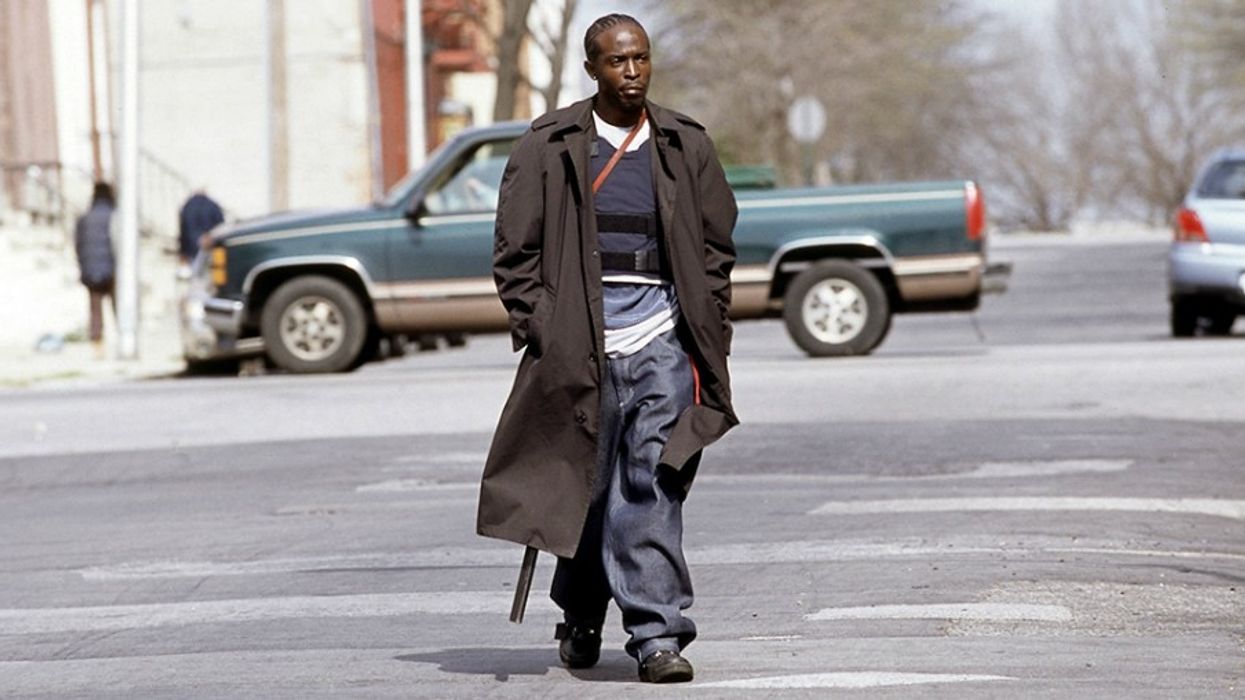Why Omar Little Was the Heart of 'The Wire'
Omar on The Wire lived by a code. And we loved to watch him live.

Omar comin'! When I think of the pantheon of immortal characters in film and television, it can be hard to pick my favorite. But I can say with certainty that few of them made me feel as giddy as I did when Omar would appear on The Wire.
Embodied by the late Michael K. Williams (Boardwalk Empire), the stickup man character of Omar was incredibly important to television history. Williams brought sensitivity and smarts to this thug. His performance was so good, that even Barack Obama cited it as one of his favorites. When it comes to character development and character arcs, there are few as poignant as Omar's on The Wire. He's the heart and soul of the sprawling show about Baltimore. And we should celebrate him as such. He truly was the heart of the TV show.
Crime dramas needed their own Robin Hood. And they got a portrayal of Omar.
But there are a lot of lessons to learn as writers, directors, and producers from such a character. So check out this video from Thomas Flight and let's talk after.
How Omar Little Was the Heart of The Wire
While characters like Marlo Stanfield, Stringer Bell, and Jimmy McNulty fought like cops and robbers trying to control the city of Baltimore, we were introduced to citizens who made the city feel alive. One of those characters was Omar Little. He would whistle "The Farmer in the Dell," to let you know he was coming. And he made that nursery rhyme incredibly chilling in real life.
He was an openly gay stickup man with a grudge against the Barksdale organization. And somehow, he embodied everything that the show aspired to be, and he tied up every side of Baltimore into one great story.
Omar's place in The Wire
Few people know this, but Donnell "Donnie" Andrews was an American armed robber, murderer, and anti-crime advocate, and the inspiration for Omar Little. Creator David Simon interviewed him, and even got him some acting credits on The Wire later. While Donnie Andrews got out of prison and turned his life around, Omar was someone portrayed as loving the game, and never seeing a way out of it. He robbed drug dealers to survive, and even when he parlayed with Proposition Joe, he always stayed fierce, never backing down from a fight.
My favorite detail from The Wire is when Omar talks about telling his grandmother that he works at the airport cafeteria, that way he knows she will never visit him at work. Omar and his life on the show are indicative of all the failings in Baltimore. Someone who wasn't able to do well in school, someone who was segregated into neighborhoods where crime was the only way. A person with a code to leave citizens out of it, but someone baptized by war.
Omar's coming
When you hear "The Farmer in the Dell," you know Omar's coming. He's a classic stickup man who can outsmart anyone at the game. He works with gangs and the law, doing everything on his terms. This iconic character left an outsized impact from his screen time. He was mythical and amazing. "If you come at the king, you best not miss."
So how did a small character become a central part of those of the greatest TV shows of all time?
If The Wire is about rebels bucking the systems we've come to take for granted, then Omar is the ultimate one. He's a Black, gay stickup man, taking over the Clint Eastwood stickup man role we used to see in Westerns. He's subverting those tropes as someone stalking the Baltimore streets.
To become the heart and soul of the show, he has to interact with everyone along the way. Throughout all five seasons, we see him work as an informant for the cops, the angel of death for Stringer Bell, and as an agent of vengeance for Butch.
The Conflict for Omar in The Wire
The conflict within The Wire is about individuals versus institutions. When it's time for Omar to come to an end, he's not killed by a dealer, but by a kid on the street, suffering from the same circumstances that allowed Omar to become Omar. The institution eventually caught up with him.
And of course, none of this could have ever been possible without Williams' brilliant portrayal.
Omar's story is the story of The Wire. The direct example of how institutions will always win—it just might take a while. And it's the tragedy of the people fighting a losing battle in Baltimore.
Let us know what you think in the comments.
Source: Thomas Flight











